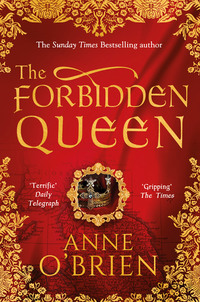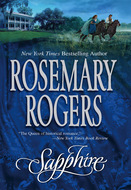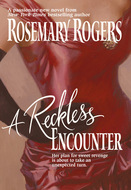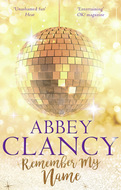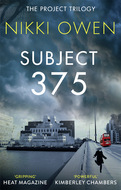Książki nie można pobrać jako pliku, ale można ją czytać w naszej aplikacji lub online na stronie.
Czytaj książkę: «The Forbidden Queen»
Praise for the author
ANNE
O’BRIEN
‘The characters are larger than life…and the author
a compulsive storyteller. A little fictional embroidery
has been worked into history but the bones of the
book are true.’
—Sunday Express
‘O’Brien has excellent control over the historical
material and a rich sense of characterisation, making
for a fascinating and surprisingly female-focused look
at one of the most turbulent periods of English history.’
—Publishers Weekly
‘Better than Philippa Gregory’
—The Bookseller
‘Anne O’Brien is fast becoming one of Britain’s most
popular and talented writers of medieval novels. Her
in-depth knowledge and silky skills with the pen help
to bring the past to life and put the focus firmly on
some of history’s most fascinating characters.’
—Pam Norfolk, Lancashire Evening Post
‘Anne O’Brien is definitely an author to watch for
historical fiction fans and I look forward to
reading more of her work in the future.’
—One More Page…
‘Ms O’Brien’s prose is smooth and uncomplicated.
Her characters’ speech is not overburdened with
archaic expressions, yet still evokes the time period.
She has obviously done a good deal of research and it
makes this story pleasurable to someone like myself,
who loves all things medieval…’
—Cynthia Robertson, Literarydaze
Also by
ANNE
O’BRIEN
VIRGIN WIDOW
DEVIL’S CONSORT
THE KING’S CONCUBINE
About the Author
ANNE O’BRIEN taught history in the East Riding of Yorkshire before deciding to fulfil an ambition to write historical fiction. She now lives in an eighteenth-century timbered cottage with her husband in the Welsh Marches, a wild, beautiful place renowned for its black-and-white timbered houses, ruined castles and priories and magnificent churches. Steeped in history, famous people and bloody deeds, as well as ghosts and folklore, the Marches provide inspiration for her interest in medieval England.
Visit her at www.anneobrienbooks.com
The Forbidden Queen
Anne O’Brien


This is a work of fiction. References to historical events, real people or real places are used fictitiously. Other names, characters, places and incidents are the product of the author’s imagination, and any resemblance to actual persons, living or dead, events or locales is entirely coincidental.
All Rights Reserved including the right of reproduction in whole or in part in any form. This edition is published by arrangement with Harlequin Enterprises II B.V./S.à.r.l. The text of this publication or any part thereof may not be reproduced or transmitted in any form or by any means, electronic or mechanical, including photocopying, recording, storage in an information retrieval system, or otherwise, without the written permission of the publisher.
This book is sold subject to the condition that it shall not, by way of trade or otherwise, be lent, resold, hired out or otherwise circulated without the prior consent of the publisher in any form of binding or cover other than that in which it is published and without a similar condition including this condition being imposed on the subsequent purchaser.
HQ is an imprint of HarperCollinsPublishers Ltd
Published in Great Britain 2013
HQ
1 London Bridge Street
London
SE1 9GF
© Anne O’Brien 2013
eISBN 978-1-472-01023-0
Version: 2019-04-12
Table of Contents
Cover
Praise
Also by Anne O’Brien
About the Author
Title Page
Copyright
Dedication
Acknowledgements
Chapter One
Chapter Two
Chapter Three
Chapter Four
Chapter Five
Chapter Six
Chapter Seven
Chapter Eight
Chapter Nine
Chapter Ten
Chapter Eleven
Chapter Twelve
Chapter Thirteen
Chapter Fourteen
Chapter Fifteen
Chapter Sixteen
Chapter Seventeen
Chapter Eighteen
Epilogue
Other titles by the author
Extract
Author Note
Read All About It…
About the Publishers



To George, as ever, whose knowledge of English
medieval history is improving in leaps and bounds
ACKNOWLEDGEMENTS
All my thanks to my agent, Jane Judd, whose support for me
and the courageous women of the Middle Ages continues
to be invaluable.
To Jenny Hutton and all the staff at HQ, without whose
guidance and commitment the real Katherine de Valois
would never have emerged from the mists of the past.
To Helen Bowden and all at Orphans Press without whom
my website would not exist, and who come to my rescue to
create professional masterpieces out of my genealogy
and maps.
‘You have witchcraft in your lips, Kate.’
King Henry to Katherine: Shakespeare’s Henry V
‘[a woman] unable to curb fully her carnal passions’
Contemporary comment on Katherine de Valois: J. A.
Giles, ed., Incerti scriptoris chronicon Angliae de regnis trium regum Lancastrensium (1848)
CHAPTER ONE
It was in the Hôtel de St Pol in Paris, where I was born, that I chased my sister through the rooms of the palace, shrieking like some demented creature in torment. Michelle ran, agile as a hare pursued by a pack of hounds, and because of her advantage of years I was not catching her. She leapt up the great staircase and along a deserted gallery into an antechamber, where she tried to slam the door against me. There was no one to witness our clamorous, unedifying rampage.
I flung back the heavy door so that it crashed against the wall. My breath was short, my side clenched with pain, but my belly was so empty that I would not surrender. I pounded in my sister’s wake, triumphant when I heard Michelle whimpering in distress as her feet slid and she cannoned into the corner of a vast oak press set against the wall. From there she lurched into yet another audience chamber, and I howled with imminent victory. There was no way out from that carved and gilded room. I had her. Or, more importantly, I would have what she gripped in her hand.
And there she was, standing at bay, eyes blazing, teeth bared.
‘Share it!’ I demanded.
When, despite her laboured breathing, she stuffed a piece of bread into her mouth, I sprang at her, and we fell to the floor to roll in a tangle of foul skirts, unwashed legs and greasy, unbraided hair. Teeth and nails were applied indiscriminately, sharp elbows coming into play until, ploughing my fist into Michelle’s belly with all my five-year-old weight, I snatched the prize from her. A stale crust and a charred bone of some unidentifiable animal that she had filched from the kitchens when the cook’s back was turned. Scrambling up, I backed away, cramming the hard bread into my mouth, sinking my teeth into the flesh on the bone, my belly rumbling. I turned from the fury in her face to flee back the way we had come.
‘What’s this?’
Despite the mild query, it was a voice of authority who spoke. I pulled up short because my way was barred, yet I would still have fled except that Michelle had crept to my side. In our terrible preoccupation we had not heard the approach, and my heart was hammering so loudly in my ears that I was all but deafened. And there, beating against my temples, was the little pressure, the little flutter of pain, that often afflicted me when I was perturbed.
‘Stop that!’
The mildness had vanished, and I stood quietly at last, curtseying without grace so that I smeared my skirts even more with grease and crumbs. There was no governess to busy herself about our manners or our education. There was never any money in our household to pay for such luxuries.
‘Well?’ The King, our father, lifted agitated eyes to the servant who accompanied him.
‘Your daughters, Sire,’ the man replied promptly, barely respectful.
‘Really?’ The King blinked at us. Then smiled brightly. ‘Come here,’ he said, at the same time as he drew a jewelled knife from his belt.
We flinched, our eyes on the blade, where the light slid with evil intent as the King slashed indiscriminately at the space before him. Our father was known to lash out at those nearest to him when the mood was on him, and we were not encouraged even when the servant removed the knife from our father’s hand—no cleaner than mine—and tucked the weapon into his own belt. Our father’s eyes were alight with a strange, knowing gleam. Unperturbed when I shrank away, he stretched out his hand to lift a lank curl of my hair from where it clung against my neck in matted hanks, like the fleece of a sheep after a long winter. His fingers tightened and I tensed all my muscles, waiting for the pain when he forgot his strength.
‘Which one are you?’ he asked, gently enough.
‘Katherine, Sire.’
‘Yes, you would be. You are very small.’ He quirked a brow. ‘And you?’
‘Michelle, Sire.’
‘Why are you not at your lessons?’
I slid a glance at Michelle, who simply hung her head. There had been no one to teach us anything for at least a month.
‘Well?’ A familiar harshness again coloured his demand. ‘Cat got your tongue?’
‘Madame, our governess, has gone away,’ I ventured.
‘Has she? Who dressed you this morning? No, don’t bother to answer that.’ The fire in his eyes dimmed as he swung round to address the servant. ‘Why are they like this? Little better than animals?’
‘There is no one, Sire.’
‘Why not? Do they not have their own household? Where are their servants?’
‘They too have gone, Sire. They have not been paid for many weeks now.’
The King bent his stare on me. The rapid blinking was unnerving but his question was both lucid and clear. ‘What are you hiding behind your back, Katherine?’ And when I showed him, he seized my hand and growled, ‘When did you last eat—apart from that?’
‘Yesterday, Sire.’ It was Michelle who answered. Words were beyond me in my fright.
‘And you stole the bread and meat? Be silent, both of you!’ the King roared before we had even begun to make our excuses, and we were silenced. ‘Before God! You’re no better than gutter urchins from the Paris stews! I should have you whipped.’
I sidled up to Michelle and clutched at her skirts, almost faint in my terror. Would our father truly beat us for our sin? I let the bread and meat fall to the floor as the trembling in my limbs became uncontrollable. I was never a brave child.
‘Where is their mother?’ he demanded. The servant shook his head. ‘Wait here!’
The King marched from the room, leaving the three of us an uneasy trio. What if he never came back? What if he forgot about us? Yet, indeed, it might be to our advantage if he did. I glanced at Michelle. Should we escape while we had the chance? She shook her head, and so we remained, listening to his footsteps fading into the distance. A little silence fell, broken only by my feet scuffing the floor and Michelle sniffing. The servant sighed heavily. And then in the distance footsteps returned. Our father strode back through the door, bringing a gust of wild, unfettered energy as he circled his arms like the sails of a windmill.
I whimpered.
‘Here!’ He thrust a goblet, heavy with gold and the glimmer of precious stones, into the servant’s hand. ‘Sell it!’ the King snarled with a show of uneven, discoloured teeth. ‘Pay a servant to tend to them. They need food and garments, fitting for my daughters.’ He stared down at us for a brief moment, puzzlement in his face, before marching once more from the room.
We were duly fed. I don’t recall if we were given new clothes.
So that is what I remember, the most vivid memory of my childhood. The cold, the hunger, the deprivation and neglect. The constant fear. The stark misery, product of the heedlessness of those who were set to care for us. Were Valois princesses allowed to suffer from misery? We were. We wallowed in it. For a little time matters improved for us, but how long could the coin raised by the sale of one gold cup last? Within a matter of weeks the coin had slipped into the hands of the servants and we were as starving and filthy as before as we roamed the palace like lost souls, bellies clapped hard against spines.
Who were we, Michelle and I? Was it accepted that Valois princesses should be raised in such squalor? Even though we were daughters of King Charles and Queen Isabeau, there was no one to plead our cause. Michelle and I were part of a vast family, of six brothers and five sisters, offspring of that most puissant King Charles VI of France and his even more powerful wife, Queen Isabeau of Bavaria.
Vastly fruitful in their marriage, the King and Queen were now estranged beyond repair. We, the younger children, trapped between them, became the victims of their hatred. My brothers were all dead, except for baby Charles, my sisters wed or had taken the veil, and Michelle and I were left to survive the shocking detachment of both parents.
Why should they care so little?
That was easy to understand as we grew older. The King our father suffered from an indisposition, increasing in virulence, that robbed him of his wits. He swung from incomprehension to lucidity, from violence to grinning insouciance, with terrifying regularity. In his worst moments he detested the Queen, hurling abuse and blows indiscriminately. As a wife who shared his bed and his Court, he had cast her off entirely. Some whispered that he had every right.
What scandal reached our ears, with its burden of sin and depravity.
For our mother, robbed of a husband who could be guaranteed to know her name, kept a separate court from our father, where she entertained a procession of lascivious amours. I might be young but the gossip was ribald and indiscreet, the innuendo clear enough to be within my understanding. I might lack a pair of shoes that were not worn through, but the Queen spent money with a lavish hand on her clothes and her courtiers, enjoying a life full of affairs of passion that horrified the courts of Europe.
A woman of outrageous physical need, it was said that she lured an endless stream of handsome, well-born men to warm her sheets. Even, it was whispered, my own father’s young brother, Louis of Orléans—until he was done to death by assassins under the orders of John the Fearless, my father’s Burgundian cousin. My own little brother Charles, the Dauphin since his brothers’ deaths, it was whispered, might not be my father’s son.
These were my parents, I their daughter Katherine. What an inheritance for a young girl to shoulder. Madness on one side, wanton lewdness on the other. The lurid rumours filled my young mind. Would I become like Charles and Isabeau? Would I inherit my parents’ natures, as I had inherited my mother’s fair hair?
‘Will I be mad and wicked too?’ I whispered to Michelle, naïve and afraid, appalled at the prospect that I would be pointed at, sneered over, ridiculed. I could not bear that.
‘I don’t see why you should,’ she pointed out with good common sense. ‘Our sister Marie was born pious—and smug about it. Why else would a woman take the veil? I have no intention of running amok or stripping to my shift for every man I see. Why do you think you should be tainted with our family shortcomings?’
This comforted me a little, until hunger and neglect forced me once more to acknowledge that my life, my hopes and fears, had no meaning for anyone. Isabeau’s reputation might paint her a woman of heat and passion, but none of it ever overlapped into maternal warmth. With the King enclosed in his chambers, and the Queen engaged in her own pursuits, Michelle and I survived as best we might, like the animals that the King had called us.
Until without warning our mother, Queen Isabeau, descended. It was not a happy reunion.
‘Holy Mother of God!’
My mother the Queen took one look at us. Even she, after her initial outburst, was silenced. Keeping her distance from the lice and squalor, she issued orders in a tone that brooked no disobedience. We were swept up, as if we ourselves were despised vermin, bundled into cloaks as filthy as we were and packed into a litter. The Queen, understandably, travelled separately and luxuriously in an eye-catching palanquin, whilst Michelle and I huddled in our hard carriage, cold and frightened, shivering with fear like a pair of terrified mice since no one had bothered to tell us of our destination. In this manner we, the two youngest of the Valois princesses, were delivered to the convent at Poissy.
‘These are the last of my two daughters. I leave them with you. They have sore need of discipline,’ the Queen announced on arrival.
It was after dark and the sisters were preparing to attend Compline, so there was no welcome for a child. I was frightened into silence. The figures in their white tunics and scapulars were ghostly, the Dominican black veils and cloaks threatening to my mind. My sister, smug and pious Marie, might already have taken her vows and be one of these shadowy beings but, so much older than I, I did not know her.
‘This is Michelle,’ the Queen continued. ‘Her marriage is arranged to Philip of Burgundy. Do what you can with her.’
I clutched Michelle’s hand, my fears multiplying at the thought of being alone with these magpie-clad creatures in so cold and bleak a place. How could I survive here, alone, when Michelle left to marry? My great-aunt, Marie of Bourbon, Prioress of Poissy, eyed us with chilly hauteur, much like one of my father’s raptors.
‘They are filthy.’ Supercilious, fastidious, her pale eyes flitted over us, disapproving. ‘And this one?’
‘This is Katherine. She is five years or thereabouts.’ Isabeau did not even know my age. ‘All I ask is that she be clean and well mannered. Suitable for a bride. There must be some high-blooded prince who will look favourably on her in return for a Valois alliance.’
The Prioress looked at me as if it might be a task beyond her abilities. ‘We will do our best for her too,’ she announced. ‘Does she read? Write?’
‘Not that I am aware.’
‘She must be taught.’
‘Is it necessary? Such skills are irrelevant for her future role, and I doubt she has the mental capacity to learn. Look at her.’ The Queen was cruel in her contempt as I snivelled in terror, wiping my face on my sleeve. ‘She will be wed for her blood, not for her ability to wield a pen.’
‘You would have her remain ignorant?’
‘I would not have her made a pedant. As long as she can catch a prince’s eye and grace his bed, someone will take her.’
They talked over my head, but I understood the tone of it and cringed from the shame that I knew I must feel. And then, the arrangements at an end, Isabeau looked at me directly for the first time.
‘Learn obedience and humility, Katherine. Be a credit to your name. You will be whipped if you choose to run wild here.’
I looked at the floor.
‘If you are sullen, who will wed you, Valois or not? No husband wants a sullen wife. And without a husband you will remain here and take the veil with your sister Marie.’
Those were her final words. She left without touching me. I was not sullen, but how could I explain? I dreaded a life I did not know or understand.
I was taken to a cell with Michelle. I could not complain, for we were not separated and it was suitably if sparsely furnished. Were we not princesses? I was given instructions to lie down, not to speak but to go to sleep, to rise the next morning at the bell for Lauds before dawn. My life at Poissy would begin.
And so it did. I lacked for nothing materially in those years. I was scrubbed and fed and given a modicum of instruction, I attended the services and learned to sing the responses. I learned obedience and humility, but no confidence such as blessed Michelle. All in all, it was a life of mind-numbing monotony as the years passed, coupled with anxiety over the strange prince who would one day take me if I proved to be pretty enough and humble enough. It was a cold existence.
‘They have need of discipline,’ the Queen had said.
And that was what we got. No love. No affection. Great-Aunt Marie’s rule was uncompromising, so that living at Poissy for me was like being encased in a stone tomb.
‘Which sins have you committed this week, Katherine?’ the Prioress asked, as she did every week.
‘I broke the Greater Silence, Mother.’
‘On one night?’
‘Every night, Mother,’ I admitted, eyes on the hem of her fine habit.
‘And why did you do that?’
‘To speak to Michelle, Mother.’
Michelle was my strength and my comfort. My solace. I needed her in the dark hours when the rats pattered over the floor and the shadows encroached. I needed to hear her voice and hold tight to her hand. If I had no confidence as a child, I had no courage either.
The Prioress’s white veil shivered with awful indifference to my plight. ‘Have you made confession?’
‘Yes, Mother.’
‘You will spend two hours on your knees before the altar. You will learn the value of the Greater Silence and you will keep the rules. If you persist, Katherine, I will put you in a cell of your own, away from your sister.’
I shuddered, my mind full of the horror of that threatened isolation. I made my penance, my knees sore and my anguish great as I knelt in the silent, dark-shadowed church, but I learned a hard lesson. I never broke the rule again, the fear of separation from Michelle a far greater deterrent than any whipping. My mind did not have the strength to encompass such shattering loneliness. So I did not speak, but I wept silently against Michelle’s robust shoulder, until I learned that tears were of no value. There was no escape for us from the dank walls and rigid rules of Poissy.
‘You will not speak,’ the Prioress admonished. ‘Neither do I wish to hear you weeping. Give thanks to God for His goodness in giving you this roof over your head and food in your mouth.’
The silent threat was all too apparent. I wept no more.
Thus was the tenor of my young days as I grew into adolescence, becoming no more poised or self-reliant as the years of my life crawled past. I learned to control my emotions, my features and every word I uttered, in fear that I might give offence. I had no map or chart to guide me in what love, or even affection, might mean. How to measure it, how to respond to it.
How could a child, who had never tasted the warmth of her mother’s arms or the casual affection of a father, or even the studied care of a governess, understand the power, the delights of love given freely and unconditionally? I did not know love in all its intricacies.
All that was made plain to me in those years was that to keep my feet on a narrow path and obey the dictates of those in authority over me earned me recognition and, very occasionally, praise.
‘I hear that you have learned to play the lute with some minor skill,’ the Prioress observed.
‘Yes, Mother.’ I flushed with pleasure.
‘That is good.’ She eyed my heated cheeks. ‘But pride is a sin. You will say three Aves and a Paternoster before Vespers.’
If I tried hard enough to follow the rules, to live as good a life as the Prioress expected, would I not become a creature worthy of love? Perhaps my father the King would recognise me and lavish affection on me. Perhaps the Queen would grow to love me and smile on me. Perhaps someone would rescue me from Poissy so that I might live as a Valois princess should live, to my immature mind, wrapped around with luxury, with silk robes and a soft bed.
I could never control my dreams of a better future. My heart remained a useless, tender thing, yearning for love, even when my childish dreams of rescue came to naught. For no one came to release me from my convent cell. No viable husband appeared on my horizon, however obedient I might be.
I did not see the Queen again for more years than I could count.
Then, when I was nearing my fifteenth year, Isabeau, our unpredictable and absent mother, found her way back to Poissy. I was summoned to her presence, where I went, drawing on all my hard-learned composure. I no longer had Michelle, now wed to our Burgundian cousin, to stand at my side, and regretted it.
‘You have grown, Katherine,’ she observed. ‘In the circumstances I suppose I must open my coffers for some new garments for you.’
Her gaze travelled over me, from the coarse cloth that strained over my developing body down to the well-worn leather on my feet. Voluptuously plump, her own extravagant curves clothed in silk and damask, the Queen’s mouth tightened at the prospect of spending money on any project not for her own pleasure. But then, startling me, she smiled, stepped close and took my chin in her hand, to lift my face to the weak light struggling through the high window slit in the nuns’ parlour.
I tried to bear her firm grip and close scrutiny with an inner calm I did not possess. I found that I was holding my breath. Certainly I dared not raise my eyes to her face.
‘How old are you now?’ she mused. ‘Fourteen? Fifteen? Almost a woman grown.’ Now I risked a glance. Isabeau had pursed her lips, eyes, always speculative, taking assessment of my features, as her fingers combed through a lock of hair that had strayed from my coif. ‘Your features are pure Valois. Not bad on the whole. There is elegance about you I would not have expected.’ She smiled a little. ‘The colour of your hair is mine—spun gold—and perhaps your nature too will be mine. Should I pity you or commend you?’ Her eyes sharpened. ‘Yes, it is time that you were wed. And I have a husband in mind for you, if I can catch him and hold him tight. What do you think of that?’
A husband. My eyes widened, a little weight of anticipation settling in my belly like a cup of warm ale on a frosty morning, but since it was entirely a surprise, I could not say what I thought about it. I had expected it, prayed for it to happen one day, but now that the moment had come…
‘Do you ever have anything to say, Katherine?’ Isabeau asked caustically.
This I considered unfair, since she had had no occasion to ask my opinion on any matter since the day she had delivered me to Poissy. Not that I would dare to give it.
‘I would like to be wed,’ I managed, as a dutiful daughter must.
‘But will you make a good wife? You should be perfect for my purposes. You’re pretty enough, your blood is Valois, you’re well formed and there’s nothing to suggest that you will not be fertile,’ she mused as my cheeks flushed. ‘It is unfortunate, of course, that he has refused you once.’
‘Who has refused me, maman?’
‘That blood-drenched butcher Henry.’
I blinked, all attention. All shock.
‘Henry of England,’ Isabeau retorted, as if I were ignorant rather than astonished. ‘Your dowry wasn’t good enough, high enough, rich enough, for his august consideration.’
This robbed me of all responses. The weight in my chest became a flutter of nerves. I had been offered to the King of England, my dowry negotiated and my hand rejected. All without my knowing.
‘The question is, can we change his mind?’ She released me with a snap of her fingers as if she might magic some solution from the cold room.
I was free to step back, away. And did so, but found the words to ask, ‘Does he still consider me, if he has refused me once?’
‘He wants France,’ Isabeau responded willingly enough, as if pleased to have an audience, but the sneer in her voice put me in my place. ‘It wasn’t enough for him to drain our lifeblood at Agincourt. He wants France for himself and his heirs, by some ancient line of descent from his long-dead Valois ancestress Isabella, who wed an English king.’ She turned her stare back on me. ‘He offered to wed you but only on condition that you came with two million gold crowns sewn into your shift as your dower. Two million.’
So much. My breath slammed into my throat. I could not imagine so many gold coins.
‘Am I worth so much, maman?’ It was beyond belief to me.
‘No. Of course you are not. We offered six hundred thousand crowns, and told the English King he was lucky to get as much, considering the state of our finances. So he demanded eight hundred thousand, and a trousseau, but no less. And that was the end of that. We haven’t got it, and the King is too witless to be able to don his own hose, much less debate a treaty.’
‘So he does not want me.’ My hopes, once soaring, now dipped like a summer swallow. ‘I will not be Queen of England.’
‘You might if we are able to remind him of your existence. So how do we remind your prince, ma petite?’ Her endearment might be tender but her tone was brittle mockery as she grasped my shoulders and forced me to face her. ‘Do we trail you onto a battlefield, so that he might catch a glimpse of your qualities as his sword cuts a vicious path through our French subjects? Or do we exhibit you at a siege, where he can peruse a possible bride on his right while he starves our people to death on his left?’ She released me abruptly.
‘Sometimes I see no way forward with such a man. But I must be persuasive. We need him. We need him in an alliance with Valois against those who would reduce France to civil war. And perhaps I see a way. We could send him a portrait, so that he can see your prized Valois features for himself, before his eye begins to stray elsewhere.’ Isabeau tapped a foot as her gaze once more rested thoughtfully on my face.
